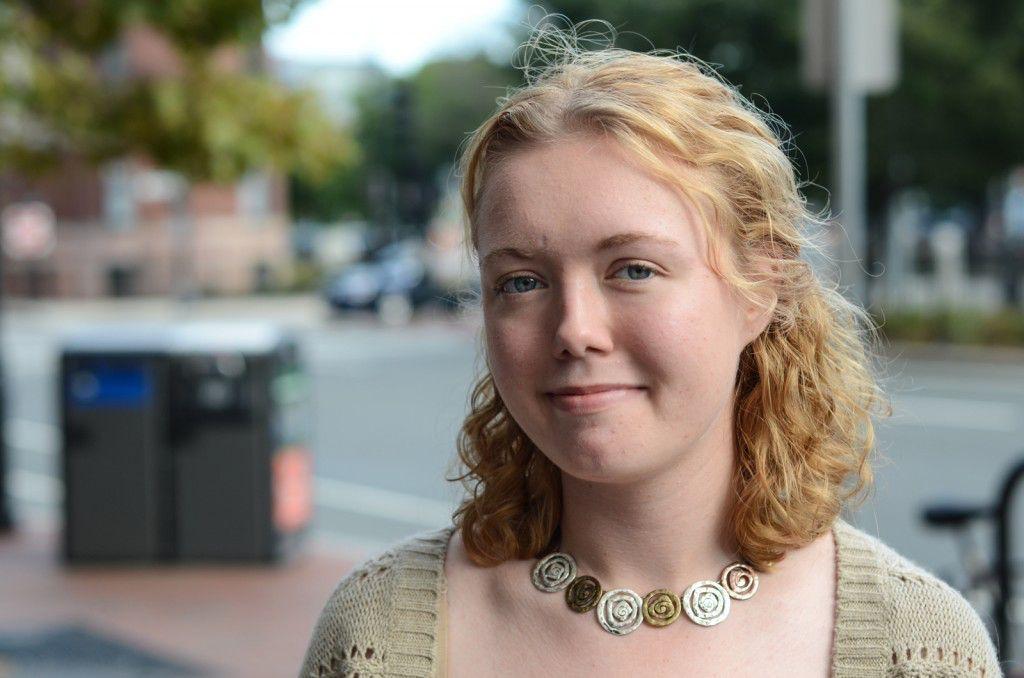I am nowhere near ready to get married, and yet I have way too many details already hammered out. My dress is going to be cream, vintage lace with a deep V in the back. The wedding will be in late November and my four (or five?) bridesmaids are going to wear either navy blue or scarlet. Ingrid Michaelson’s “You and I” would make a phenomenal first dance song.
One thing I don’t have figured out is whether or not I’ll take my husband’s name. There are too many variables to make that decision a decade in advance. “Ryan” is a solid, simple and easy-to-spell last name. Plus, if I’m already established in my career, changing my last name could hurt my ability to advance. Now, if that new last name were “Gosling,” I probably wouldn’t put up much of a fight.
On Monday, the Washington Post published an article about this topic in the political realm. Last week, a government official publically criticized a female candidate’s choice to keep her last name. Michelle Nunn, currently running for the U.S. Senate seat in Georgia, is the daughter of former U.S. Sen. Sam Nunn. The official, Ralph Hudgens, accused Nunn of “riding her daddy’s coattails” by keeping her last name.
I’m going to successfully sum up the rest of this article in a one-word response to Commissioner of Insurance Hudgens:
Seriously?!
First, it is nobody’s damn business why she chose to keep her last name, even if she said, to her husband, “You know, I really like your last name, but I have a political future, and it would really benefit me if I kept my dad’s last name.” The only reason there’s even a discussion here is because Nunn is a woman.
You know who never had to make that decision? John Quincy Adams. Ted Kennedy. Calvin Coolidge. They were all the sons of prominent politicians. Each one of them benefitted from his father’s legacy. Nobody had anything to say about that.
Second, this is just the latest in a long line of double standards that women face (side note: You should read this awesome book by Jessica Valenti on double standards in Western culture.). Our society is still struggling to find balance between the Suzy Homemaker image of the last two centuries and a confident career woman, trying to have it all.
Women in politics face a myriad of obstacles. One 1993 study, titled, “The Consequences of Gender Stereotypes for Women Candidates at Different Levels and Types of Office,” found that regardless of position and level of government, good politicians were seen as more masculine than feminine. Women literally have to overcome their gender in order to be perceived as competent politicians.
Female politicians are also vastly outnumbered. I’ve cited this statistic before, but women make up 51 percent of the U.S. population and only 4 percent of our federal Legislature. Rather than making insensitive and uncalled-for remarks, officials like Hudgens should be encouraging women to run for government positions.
Hudgens has no right to question Nunn’s decision to keep her last name. It’s no different than if he were questioning her candidacy because as a woman, she should be at home raising the kids. It blows my mind that we are still having these discussions publicly in the 21st century.
I’m not saying that every woman should keep her last name and swear off the patriarchy. I just think that these discussions should involve exactly two people: those getting married.
As a voter, it’s none of my business why a candidate has a particular last name. Whether it’s Phoebe Buffay or Princess Consuela Banana Hammock, a candidate’s name should be the least of my concerns. What if, instead, we worry about the issues and how a candidate is going to best represent his or her constituents?
Until the day comes when a woman can run for office without her gender being discussed, we’re not going to stop talking about stupid things like this. Until we decide that a woman is not intrinsically less competent than a man, I have no problem spending 800 words complaining about people like Ralph Hudgens.
In summation, we need to change how we discuss women in politics. Women are more than their gender and more than the stereotypes our society has assigned them. I cannot bake to save my life, and if I’m wearing an apron, I probably lost a bet.
Our nation is getting better at looking at people first and their qualities second. If we could just apply this to politicians, we would be in a much better place. We are more than our gender, ethnicity and sexual orientation. We are not limited by our address or marital status. I don’t see why a last name should be any different. It’s about the person, not the name.























































































































nathan • Oct 29, 2014 at 8:46 am
I took my wife’s last name.
Mainly because she had two kids, so with three of them and one of me, I changed my last name so we could have a unified nuclear family name.
Changing name at marriage is EASY for men in Massachussetts.